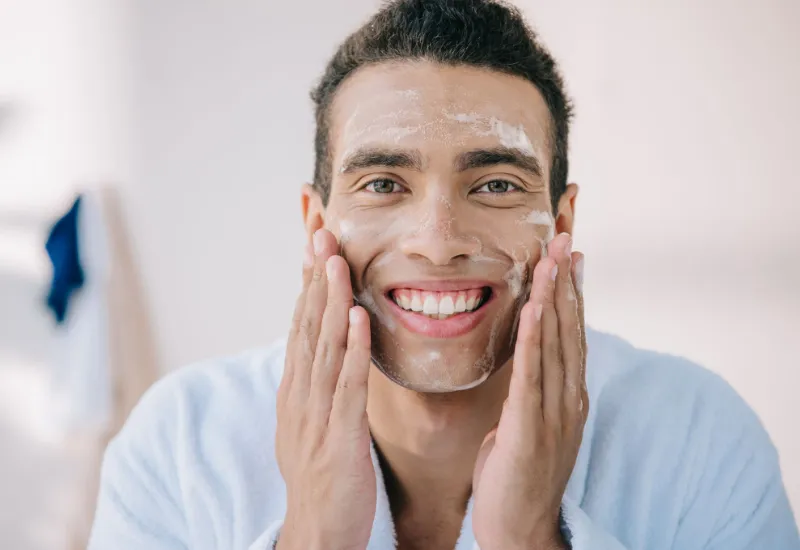Having acne-prone skin is not easy and it can sometimes feel like an unsolvable problem, however, as your dermatologist will tell you, with some care and effort you can minimize your acne-related issues. One way to help clear your skin is by using face washes that are specifically designed for acne-prone skin.
These face washes are different from regular face washes in terms of ingredients, which is a cause for concern for some people. So, if you’re worried about what an anti-acne face wash does to your skin, read on to put your mind at ease.
What Causes Acne?
The major cause of acne is clogged pores and hair follicles. There are certain bacteria present on your skin which, if they find their way into pores, result in breakouts. As we all know, our skin is in a constant process of renewal, but the new cells that are produced are often hidden by the dead cells left behind. These dead cells, if left unremoved, also contribute to acne.
Your skin also has sebaceous glands that produce necessary oils to keep your skin in good condition. Acne can also result from abnormal oil production by these glands.
So, the facewash you use has to do a certain type of work, it should clear away the harmful acne-causing bacteria from your skin, it should remove dead skin cells and it should help control oil production on your face.
How Do Anti-Acne Face Washes Work?
Medicated cleansers and face washes tend to have an ingredient called salicylic acid in them. This ingredient helps to clear away dead skin cells from the top layer of your face, while also soothing inflammation and redness. This reduces the appearance of pimples. Of course, this cannot be applied to dry skin because it only shows results if your skin has been washed with water first.
Another ingredient in anti-acne face washes is benzoyl peroxide, which works by killing acne-causing bacteria and exfoliating the skin. This also helps clean excess sebum, thereby making your skin less oily and making it a less-than-optimal environment for acne-causing bacteria.
The thing to keep in mind with both these ingredients is that you need to massage them on the affected areas for around 20-30 seconds for them to get to work.
But How Safe Is It?
Now that we’ve discussed the source of the issue and the means to correct it, we have to look at how safe those means are. We talked about using the aforementioned ingredients only on the affected areas of your face.
This is because these products can really dry your skin out. And while drying out your skin is kind of the point because that reduces acne, you don’t want to use it on the unaffected clear areas because drying out good skin can be very damaging.
For one, drying out already good skin ages it, but another thing that tends to occur is that when you make your skin dry, it produces more sebum to bring it back to normal and with time this increased sebum production ends up causing even more acne.
Therefore, while these products are safe enough to use on acne, as long as you aren’t allergic to them, they can be less than ideal on the rest of your face.
One other thing you need to keep in mind is that most anti-acne medications and medicated face washes tend to make your skin more sensitive so after you cleanse your face, you should always moisturize using a non-comedogenic moisturizer because that doesn’t clog your pores, and finish it up with a sunscreen to protect your skin.












